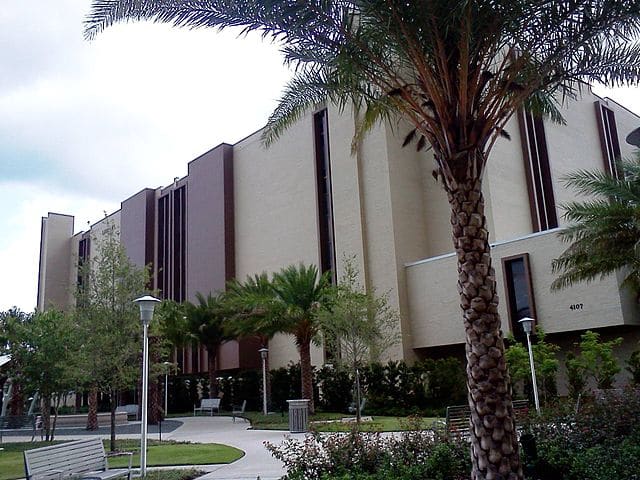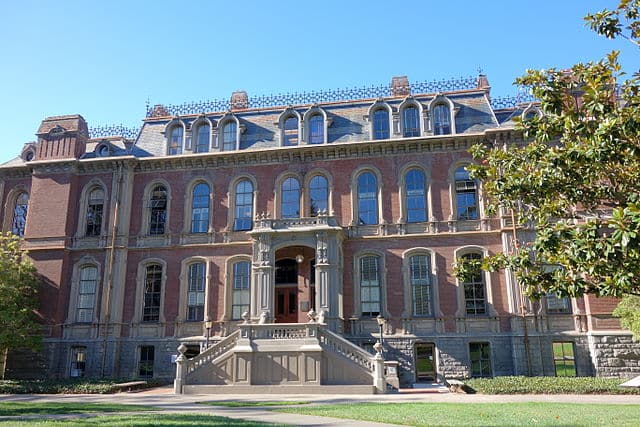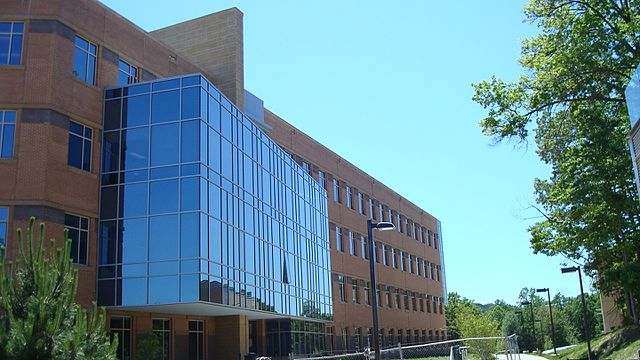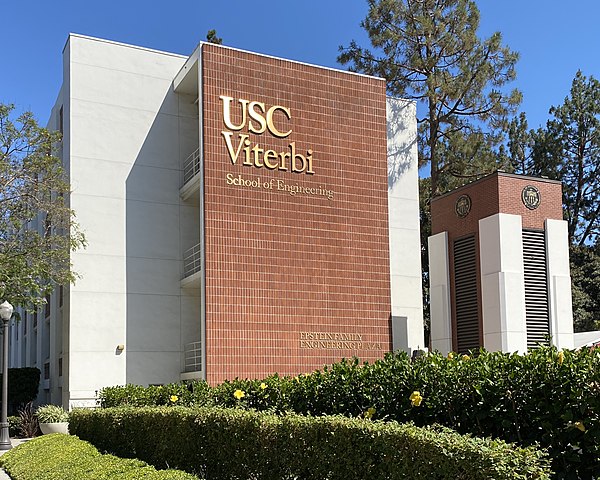If you want to enjoy working in a role that challenges you to engage several complex mental faculties, improve complex systems, and make excellent compensation while doing what you love, you should strongly consider a master’s degree in information technology.
An MS in IT will prepare you to be successful in higher-level roles within diverse industries, such as a project manager, IT director, or chief technology officer.
Typically obtained in 2-3 years, MS degrees in IT are offered in various in-person, asynchronous, and hybrid forms, making them accessible to learners at different stages of their careers.
People with an MS in IT tend to make strong earnings immediately after graduating, and these figures are sustained throughout their careers.
For example, a software engineer averages a salary of $110,000, while other professions can earn even more.
IT and computer science are occupations that will continue to expand through 2030 – by 11-33% across the nation, according to the U.S. Bureau of Labor Statistics.
Even if you have little to no experience in computer programming, MS programs in IT are generally welcoming to non-engineering and non-programming applicants.
Here are 10 of the best master’s in information technology schools in the US.
While some of them are unsurprisingly located near Silicon Valley, you’ll indeed find excellent programs throughout the United States.
Cornell University (Ithaca, NY)

At Cornell, information sciences, systems, and technology (ISST) majors take courses in economics, statistics, operations research modeling methods, and contexts of transformative information systems.
The program supports student-led research, and program participants can receive academic credit for their research endeavors.
What distinguishes Cornell’s ISST program from those of its competitors is its engaging student organizations.
Cornell Data Science, for example, includes over 90 students collaborating on real projects in the areas of education, algorithmic trading, insights, data engineering, and intelligent systems.
The Information Science Student Association is one of the largest groups for ISST majors. Its recent events include research panels, alumni panels, resume critique sessions, ice cream socials, corporate recruitment lunches, and student mentor programs.
Florida State University (Tallahassee, FL)

Admission to Florida State’s MS in information technology course is hugely competitive.
The school also offers a joint Juris Doctor/Master of Science IT program, giving graduates a competitive edge over their peers in the job market.
Students in the MSIT program take 12 core credits in topics like usability analysis and information behavior before moving on to 20 elective credits.
Exciting and applicable course titles include “Social Computing and Collaboration Technologies,” “Managing Makerspaces,” and “Mobile Application Development.”
Students have a lot of freedom to choose electives most relevant to their interests and career plans.
We like how Florida State organizes its course offerings into five overarching concentrations. In the large-scale data management concentration, for example, students prepare to manage large volumes of data as part of an organization’s daily operations.
On the other hand, leadership and management classes prepare future tech leaders to meet the current and evolving needs of a fast-growing profession.
University of South Florida (Tampa, FL)

The University of South Florida employs some of the greatest minds in information and computer science – its faculty have obtained over 30 patents, owned multiple copyrights, and earned millions in research funding.
In fact, when it comes to research, no other public American university has increased more steeply in the rankings than USF, according to the U.S. News and World Report.
USF is also acclaimed for its high graduation rates of historically underrepresented minority students.
Its job placement within the past five years includes exciting companies like Intel, Google, and Apple.
Computer science and engineering graduates earn a typical starting salary of $95k to $140k per year, in addition to benefits!
Students pursue the MS in information technology (MSIT) degree in a hybrid fashion, incorporating in-person, virtual synchronous, and virtual asynchronous interactions and projects.
Suggested prerequisites for this track include programming fundamentals, database systems, and software engineering concepts, to name a few.
The University of California, Berkeley (Berkeley, CA)

Graduates with an MS in information management systems work in intellectually stimulating positions in tech companies, consulting firms, entertainment, healthcare, and other services.
The great thing about data analysis, user interface design, and cybersecurity skills is that they are transferable across a range of disciplines.
The class of 2020’s median reported salary was $132,500, which included a $25,000 signing bonus for a quarter of the respondents.
Several experiences define the MIMS program at UC Berkeley, with one being the summer internship in an academic, corporate, nonprofit, or government setting.
During the last semester of their second year in the program, participants commence final projects, which are interdisciplinary in nature and designed to challenge the student to use their newly-developed skills to implement a prototype information system.
Students can earn the Dr. James R. Chen Award or Sarukkai Social Impact Award for their designs.
The former fund is managed to encourage creativity in the field of information retrieval and management, while the latter was established to support students whose projects show promise in solving a social problem or improving living conditions.
George Mason University (Fairfax, VA)

In 1985, George Mason University built the Volgenau School of Engineering, which would become the first American institution to offer a doctoral degree in IT.
The university now enrolls more than 35,000 students (mostly from Virginia) and employs an accomplished faculty of Pulitzer Prize winners, Nobel Prize laureates, and Fulbright Scholars.
George Mason’s MS in applied information technology is oriented toward IT leaders working at the intersection of government, business, and nonprofit fields.
Graduates will be prepared to work in knowledge mining, big data analytics, and cyber-human interaction, to name a few emerging fields in the industry.
The MS requires a minimum of 30 credits in one of five major concentrations, which include machine learning engineering and IT management.
Regardless of one’s selected concentration, all program participants will complete foundational courses like “Information: Representation, Processing, and Visualization” and “Fundamentals of Computing Platforms.”
DePaul University (Chicago, IL)

Information technology majors specialize their degrees in one of six concentrations.
Within the project management and business analysis concentration, for example, students will develop IT projects from start to finish within the context of real organizations within the project management and business analysis concentration.
In another concentration – IT governance and legal responsibilities – students practice running IT operations on varying scales and confronting anticipated issues with support from faculty and peers.
92% of DePaul IT graduates find exciting careers quickly within six months of graduating, and the median salary totals $70,000 – not too bad!
The MS in information systems prepares students to flourish in the IT and business cross-sections of industry.
Many students attend IT conferences and enjoy hands-on experience using advanced SAP ERP systems used exclusively by Fortune 500 companies!
At DePaul, the most promising students in the realms of business analytics, research, software engineering, and user design are eligible to gain valuable experience collaborating with the DePaul Innovation Lab.
In this setting, students work with representatives from major tech companies on important projects that can have positive implications for various industries.
Northwestern University (Evanston, IL)
Northwestern’s MS in information systems (MSIS) challenges students to develop and manage software projects for actual clients and organizations.
Candidates are expected to declare their area of specialization upon applying to the MSIS program. Admitted students will complete four core classes, a leadership course, and all of their specialization courses before engaging in their final capstone project.
Regardless of which of the eight concentrations they pursue, all MSIS students complete a final project – they can do so independently or as part of a group.
The artificial intelligence specialization is one of the newest concentrations in which students can focus. Participants will develop software robotics and practical data science skills using machine learning.
In the health informatics specialization (rarely offered in top IT programs), students understand how IT impacts stakeholders in the healthcare industry and take classes that will help them create more positive outcomes for populations worldwide.
University of Southern California (Los Angeles, CA)

Information technology certainly is popular at USC – one out of every five USC students is enrolled in IT classes!
While USC offers an MS in computer science, it also provides more MS degrees in specialty IT fields than any other school on this list!
For example, one can obtain an MS in game development, intelligent robotics, or multimedia and creative technologies, and those are just offerings from the computer science category!
The Viterbi School of Engineering additionally houses master’s programs in data security and cybersecurity.
One of the school’s assets is that it provides many options for students, and 86% of MSIT students majored in a non-engineering field before entry.
Various minors are available for interested students, including an education and computing branch of study that prepares students to enter teaching, research, and policy positions within the STEM education industry.
Johns Hopkins University (Baltimore, MD)
Johns Hopkins offers an online, part-time MS in information systems, with specializations in information management, software engineering, and human-computer interaction, for example.
Within the cybersecurity concentration, students might take classes like “Protecting Critical Infrastructure Against Cyber Attacks,” while MSIS majors in enterprising will develop websites for various clients.
The average salary of a Johns Hopkins MSIS graduate amounts to $86,000, with the possibility for much higher earnings in leadership positions.
The great thing about Johns Hopkins’ program is that applicants don’t need to have a deep engineering background to succeed in the program’s courses.
If a student needs financial assistance to obtain an MS in IT, Johns Hopkins covers nearly 80% of enrolled students’ tuition fees through employer contribution programs alone!
Virginia Tech (Falls Church, VA)

Virginia Tech’s MS in information technology is ranked #3 in the nation by the 2022 U.S. News & World Report, and the good news is that students can complete 100% of course requirements online!
Most MSIT participants have careers and take 1-2 courses each semester, on average, completing their degrees in under three years.
This makes an MSIT from Virginia Tech significantly more affordable, as room and board, transportation, and other associated fees don’t factor into online education.
Generally, this program applies to people looking to advance to the next stage in their tech careers.
For this reason, there is significant flexibility when it comes to choosing courses. Some students will be more steeped in business data analytics, while others will grow their skills in software development.
It’s recommended that applicants have some sort of Java programming experience prior to starting the MSIT curriculum.
The school additionally enrolls students in a dual MBA/MSIT degree track for those who may wish to create their own businesses or stand out among job competitors.














